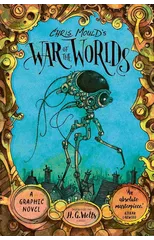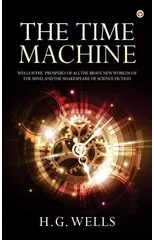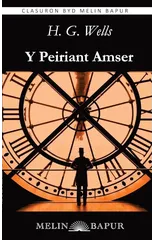On a summer night, at the end of the nineteenth century, a " meteor" lands on Horsell Common in London. An artificial cylinder is found the next day and upon approaching it, the unsuspecting humans are instantly killed by an all-destroying heat-ray, as terrifying Martians emerge and blaze a path of fiery destruction across Victorian England. Amid the boundless destruction that is caused, it looks as if the end of the world has come . . . . The War of the Worlds is one of the earliest science-fiction that explores the possibilities of intelligent life from other planets and details a conflict between humankind and an extraterrestrial race . . . this novel vividly describes the mass hysteria such an invasion would stimulate and shows how unprepared our civilization is for the onslaught of forces from another world. "
H.G. Wells
H.G. Wells was a prolific English writer best known for his science fiction novels. His most notable works include "The War of the Worlds," "The Time Machine," and "The Invisible Man." Wells' writing style was characterized by his imaginative storytelling, social commentary, and exploration of scientific concepts. He is often credited with popularizing the science fiction genre and influencing future writers in the field. "The War of the Worlds" remains his most famous work, depicting a Martian invasion of Earth and exploring themes of imperialism and the resilience of humanity. Wells' contributions to literature have had a lasting impact on the genre of science fiction and continue to be celebrated to this day.





